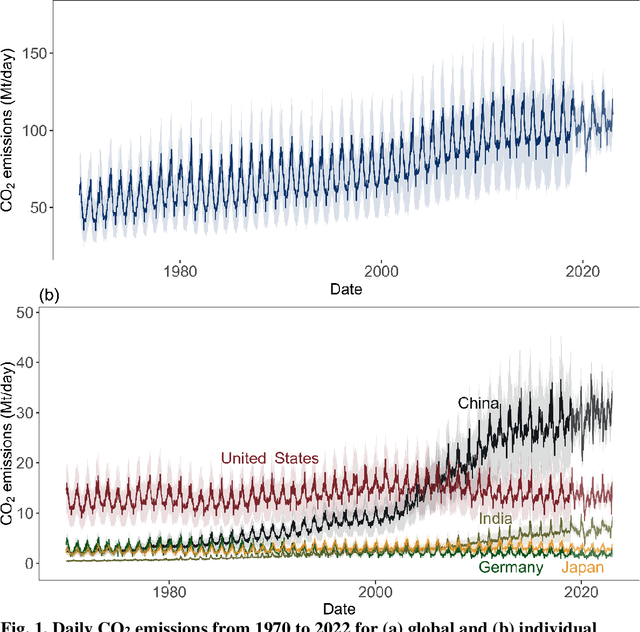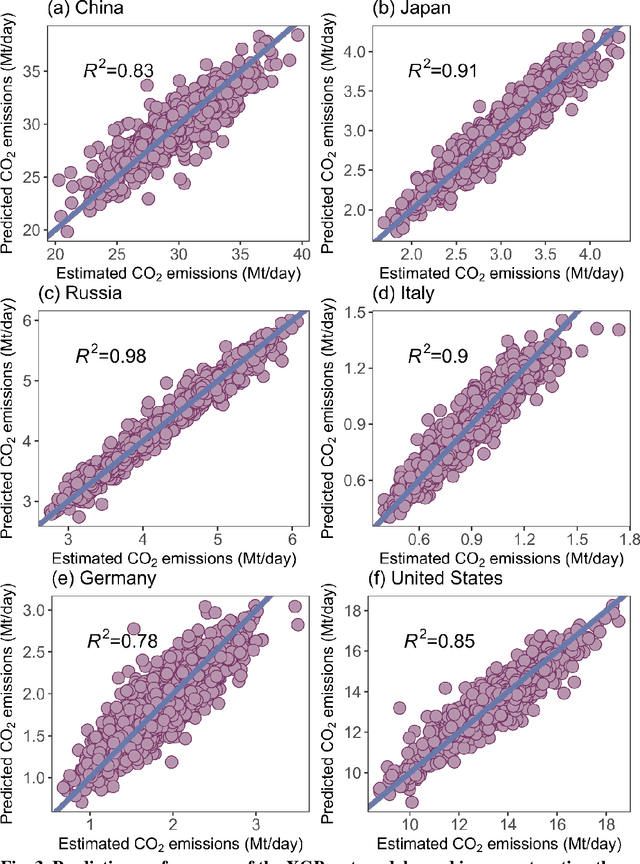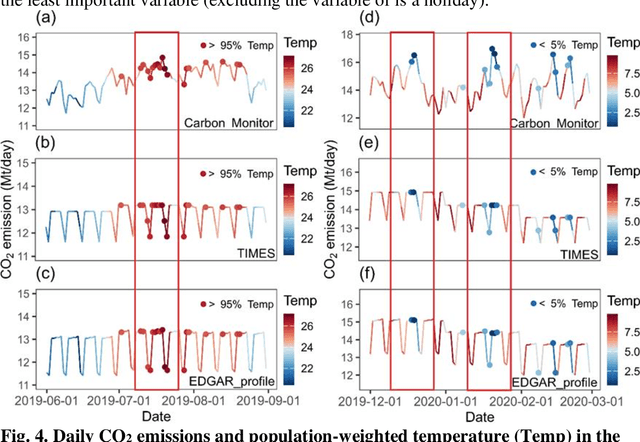Xiaoting Huang
Reconstructing Global Daily CO2 Emissions via Machine Learning
Jul 29, 2024



Abstract:High temporal resolution CO2 emission data are crucial for understanding the drivers of emission changes, however, current emission dataset is only available on a yearly basis. Here, we extended a global daily CO2 emissions dataset backwards in time to 1970 using machine learning algorithm, which was trained to predict historical daily emissions on national scales based on relationships between daily emission variations and predictors established for the period since 2019. Variation in daily CO2 emissions far exceeded the smoothed seasonal variations. For example, the range of daily CO2 emissions equivalent to 31% of the year average daily emissions in China and 46% of that in India in 2022, respectively. We identified the critical emission-climate temperature (Tc) is 16.5 degree celsius for global average (18.7 degree celsius for China, 14.9 degree celsius for U.S., and 18.4 degree celsius for Japan), in which negative correlation observed between daily CO2 emission and ambient temperature below Tc and a positive correlation above it, demonstrating increased emissions associated with higher ambient temperature. The long-term time series spanning over fifty years of global daily CO2 emissions reveals an increasing trend in emissions due to extreme temperature events, driven by the rising frequency of these occurrences. This work suggests that, due to climate change, greater efforts may be needed to reduce CO2 emissions.
SGRU: A High-Performance Structured Gated Recurrent Unit for Traffic Flow Prediction
Apr 18, 2024



Abstract:Traffic flow prediction is an essential task in constructing smart cities and is a typical Multivariate Time Series (MTS) Problem. Recent research has abandoned Gated Recurrent Units (GRU) and utilized dilated convolutions or temporal slicing for feature extraction, and they have the following drawbacks: (1) Dilated convolutions fail to capture the features of adjacent time steps, resulting in the loss of crucial transitional data. (2) The connections within the same temporal slice are strong, while the connections between different temporal slices are too loose. In light of these limitations, we emphasize the importance of analyzing a complete time series repeatedly and the crucial role of GRU in MTS. Therefore, we propose SGRU: Structured Gated Recurrent Units, which involve structured GRU layers and non-linear units, along with multiple layers of time embedding to enhance the model's fitting performance. We evaluate our approach on four publicly available California traffic datasets: PeMS03, PeMS04, PeMS07, and PeMS08 for regression prediction. Experimental results demonstrate that our model outperforms baseline models with average improvements of 11.7%, 18.6%, 18.5%, and 12.0% respectively.
Ordered Reliability Direct Error Pattern Testing Decoding Algorithm
Oct 18, 2023



Abstract:We introduce a novel universal soft-decision decoding algorithm for binary block codes called ordered reliability direct error pattern testing (ORDEPT). Our results, obtained for a variety of popular short high-rate codes, demonstrate that ORDEPT outperforms state-of-the-art decoding algorithms of comparable complexity such as ordered reliability bits guessing random additive noise decoding (ORBGRAND) in terms of the decoding error probability and latency. The improvements carry on to the iterative decoding of product codes and convolutional product-like codes, where we present a new adaptive decoding algorithm and demonstrate the ability of ORDEPT to efficiently find multiple candidate codewords to produce soft output.
 Add to Chrome
Add to Chrome Add to Firefox
Add to Firefox Add to Edge
Add to Edge